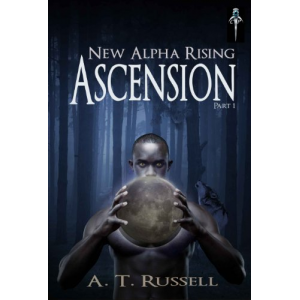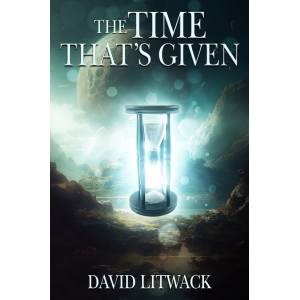- Author
- Book
- Story behind the book
- Media Links
- Reviews

Charlie Lovett
About
Charlie Lovett is Writer-in-Residence at Summit School in Winston-Salem, NC. His plays for children have been seen in over 1,000 productions in all 50 states and five foreign countries.
He is the author of 11 previous books, including works on Lewis Carroll and the acclaimed memoir Love, Ruth.
The Program is his first novel.

New Alpha Rising: Ascension Part I
Description
<p>Countless years ago, measured in thousands, the Gods came first. Monstrous creations were born of their frivolity. Like the Gods, some of the creations were peaceful, others not. Their duty to preserve the earth completed once more, however, the day came that the Gods had to leave earth. Unleashed and with loose regulation, the abominable creations left behind multiplied. In their midst, another conception came to be, and his kind would exist absolutely outside of the God’s purview.<br />Unmated, alone, and untrusting of others, Chatran was charged to go to a place and protect the father of a great child, yet unborn. This duty, however, was unknown to the most cognizant part of Chatran. Only the Beast, who resided within him, knew. As a result, the Beast led Chatran to Walhalla, North Dakota. Although his initial charge was to protect the father he found there, Chatran also gained a mate and Pack. With them, Chatran also found a new way forward, and started on a course that would lead to – New Alpha Rising: Ascension.</p>
Story Behind The Book
Media Links
Reviews
<strong>Kirkus Reviews</strong> (April 1, 2011)<br /><br />This dynamic theater story stars Aggie, a girl whose enthusiasm, mad talent and diva qualities lead her astray. Steamed that she doesn’t get the lead in the school’s production of <em>Hello, Dolly</em> and convinced it’s because she’s fat, Aggie writes a roman à clef musical. It features two girls, the fat one an undisguised Aggie, the thin one suspiciously similar to the girl playing Dolly, Cynthia of the recent boob job. Aggie’s friends (techie Suzanne, ever-loyal Elliot and lyricist Cameron) support Aggie’s hostility toward Cynthia despite knowing it’s unfair: Cynthia’s nice and actually deserved the lead because of her singing skill. They mount a major production of Aggie’s show that, astonishingly, succeeds. Aggie’s almost failing math, Cameron comes out to his parents (and it goes badly) and Aggie resents the parental support that Karl, her father’s partner, gives Cameron—Aggie’s possessive of her stepfather’s attention. The prose, sometimes unpolished and forced but always infused with warmth, brims with musical-theater references. Unlike most arcs about fat teens, this one never equates emotional growth with weight loss; Aggie’s refreshingly non-symbolic fatness is just part of her. Like Elphaba in the song that Cameron rewrites, Aggie tries defying gravity—and succeeds, musically, socially and romantically. Given the ratings of <em>Glee</em> and the emerging popularity of teen lit combining queer themes and musicals, this should be a hit. <em>(Fiction. 13 & up)</em>






